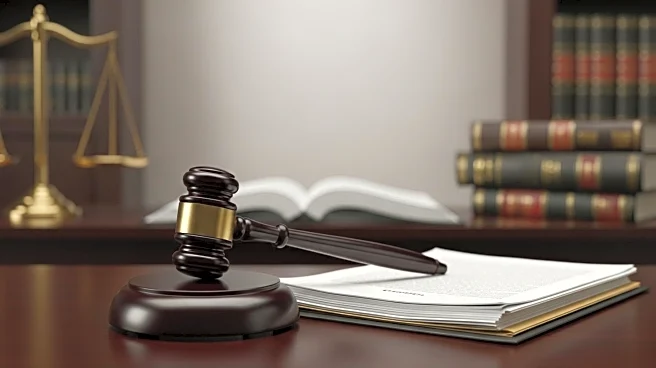What's Happening?
The Supreme Court has declined to hear an appeal from Alex Jones regarding a $1.4 billion defamation judgment against him. This decision upholds the previous ruling that found Jones liable for damages due to his false claims that the 2012 Sandy Hook Elementary School shooting was a hoax. The judgment includes $965 million awarded by a Connecticut jury for defamation and emotional distress, along with an additional $474 million in punitive damages. Jones, known for his conspiracy theories, had argued that the shooting was staged by 'crisis actors' to promote gun control. His claims led to harassment of the victims' families by his followers. Despite his appeal, Justice Sonia Sotomayor denied Jones' request for emergency relief, solidifying the court's stance.
Why It's Important?
The Supreme Court's decision to reject Alex Jones' appeal is significant as it reinforces accountability for spreading false information and conspiracy theories. This ruling serves as a precedent for similar defamation cases, emphasizing the legal consequences of harmful speech. The judgment against Jones highlights the impact of misinformation on victims and their families, who faced threats and harassment. It also underscores the judiciary's role in protecting individuals from defamation and emotional distress. The case is a critical example of the balance between free speech and the protection of public safety and truth.
What's Next?
With the Supreme Court's decision, Alex Jones and his company, Free Speech Systems, face the challenge of addressing the substantial financial judgment. Jones has filed for bankruptcy protection, and there are ongoing efforts to sell InfoWars, his media company. The bankruptcy proceedings will likely continue to unfold, impacting Jones' ability to pay the damages. Additionally, this case may influence future legal actions against individuals or entities spreading misinformation, potentially leading to more stringent regulations or legal standards for defamation.
Beyond the Headlines
The case against Alex Jones raises broader questions about the ethical responsibilities of media figures and the impact of conspiracy theories on public discourse. It highlights the potential for misinformation to cause real-world harm and the need for accountability in media practices. The legal battle also reflects ongoing societal debates about free speech, particularly in the context of digital platforms and the spread of false narratives. As misinformation continues to be a pressing issue, this case may prompt discussions on how to effectively combat false information while respecting free speech rights.











